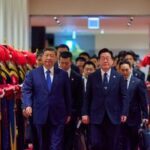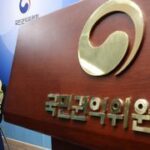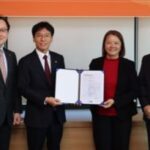
Christophe Fouquet, CEO of ASML, asserted that China’s semiconductor manufacturing capabilities will lag by 10 to 15 years.
In a recent interview with NRC, Fouquet predicted the potential impact of the export ban on extreme ultraviolet (EUV) lithography equipment.
He predicted that the EUV export ban would set China’s semiconductor industry back by 10 to 15 years compared to major players in the field. EUV stands for extreme ultraviolet, the equipment used in lithography technology, a core process in semiconductor manufacturing. Currently, ASML exclusively supplies EUV technology.
He noted the remarkable achievement of Chinese firms like SMIC and Huawei in producing 7-nanometer chips despite U.S. export restrictions. However, he pointed out that these companies lag 10 to 15 years behind industry leaders such as Intel Corporation, TSMC, and Samsung.
Fouquet explained that while Chinese companies possess top-tier deep ultraviolet (DUV) equipment, they lack access to EUV machines. He added that although SMIC recently ordered an EUV machine, ASML has no intention of fulfilling it.
Huawei and SMIC are exploring the development of their own lithography machines to manufacture chips using processes comparable to those used by TSMC and Samsung Foundry. However, Fouquet emphasized that it would take China 10 to 15 years to develop EUV equipment. By then, he noted that TSMC and Samsung would already be using next-generation EUV machines capable of manufacturing far more advanced chips.
However, the more pressing concern is not China’s development of EUV equipment but the possibility that they could replicate ASML’s key DUV machine, the Twinscan NXT:2000i, within just a few years.
Consequently, the U.S. government pressures ASML to cease maintaining advanced DUV systems for China. However, the Dutch government has yet to agree to this request. ASML contends that if Chinese companies directly engage in maintenance, sensitive information could leak.














Most Commented